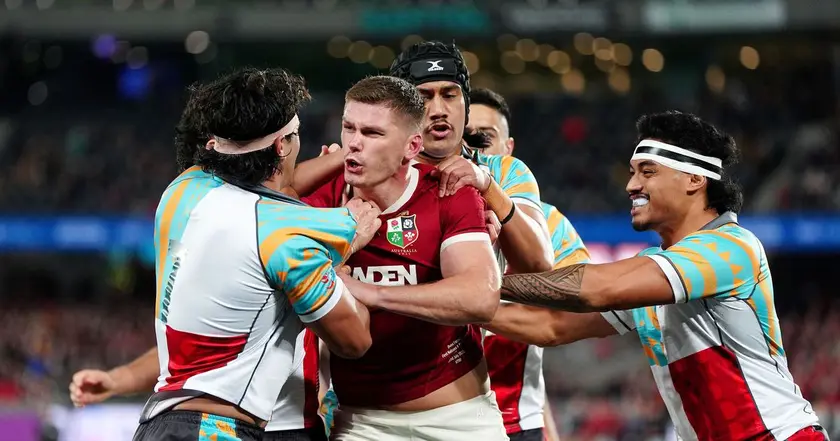T4K3.news
Rugby salary reveal and lineup changes
Rees-Zammit’s wage details and late team changes for the Rugby Championship opener

A look at how money, development and attendance shape rugby moves from Wales to South Africa and beyond.
Rees-Zammit salary reveal shifts focus on rugby dreams
Louis Rees-Zammit reportedly turned down larger money offers to sign with Bristol Bears. Pat Lam, Bristol’s director of rugby, says the Welsh wing is driven by a goal to become the best back-three player in the world, and that wages were not the deciding factor. The article notes the 24-year-old earned around £225,000 a year at Gloucester and could have attracted top offers elsewhere, including in France, but chose a path that focuses on rugby development and Wales ambitions. Lam emphasizes that the decision left it to the player to choose money versus a strong rugby programme, a stance he describes as the main draw of the deal.
Australia have been forced to make a late change to their Rugby Championship opener against South Africa. James O’Connor will start at fly-half, with Ben Donaldson withdrawn after a training niggle. Tane Edmed is brought in to the matchday squad, while Tom Lynagh misses out due to a concussion. The game is set for Emirates Airlines Park on Saturday.
South Africa’s plan to fill Ellis Park for their opener against Australia fell short of a full house. SA Rugby says the budget targets were met despite the stadium not selling out. The venue capacity is 62,000, well below Principality Stadium’s nearly 75,000, and a 2,000-ticket giveaway led by politician Gayton McKenzie has been reported to boost attendance.
Key Takeaways
"to become the best back-three player in the world"
Pat Lam on Rees-Zammit's goal
"What I really enjoyed about the whole thing is that he could have gone anywhere for lots of money"
Lam on offers and decision making
"that was the main thing"
Lam describing the decisive factor
"He wants to get back into rugby and be the best back-three player in the world"
Lam on motivation and goals
The moves highlight a broader shift in how clubs value a player’s long-term impact over a simple wage bill. Rees-Zammit’s decision to sign for Bristol on a level the public might not expect signals a prioritization of development, coaching environment, and a clear pathway back to Wales over immediate payday comparisons. It suggests clubs may increasingly market projects that promise growth and return to international rugby, not just big salaries.
The attendance and budgeting notes from Ellis Park reveal another tension in modern rugby: financial planning must contend with live gate receipts that are not guaranteed even when forecasts are met. Budget discipline appears intact, but public engagement remains fragile. The political angle around ticket promotions underscores rugby’s place in wider civic life and the risk of backlash if fans feel access or affordability is misaligned with the sport’s ambitions.
Highlights
- What I really enjoyed about the whole thing is that he could have gone anywhere for lots of money
- that was the main thing
- He wants to get back into rugby and be the best back-three player in the world
- That dream is really important
Budget and attendance under scrutiny in rugby events
The article ties player wages to club budgets and notes attendance gaps at Ellis Park, raising questions about how teams balance growth with affordability and fan engagement. Political promotions around tickets add another layer of risk for public perception and governance.
The road ahead will test how clubs balance ambition with budgets.
Enjoyed this? Let your friends know!
Related News

Dan Cole analyzes England's rugby lineup

Carlos Correa traded to Astros

NBC Reveals Fall Premiere Dates for 2025

New product announcements at Made By Google 2025
Google reveals upcoming Pixel devices and new color

Three games removed from Nintendo Direct Partner Showcase

iPhone 17 Series Announcement Date Set

England EPS contracts and World Rugby mouthguards
